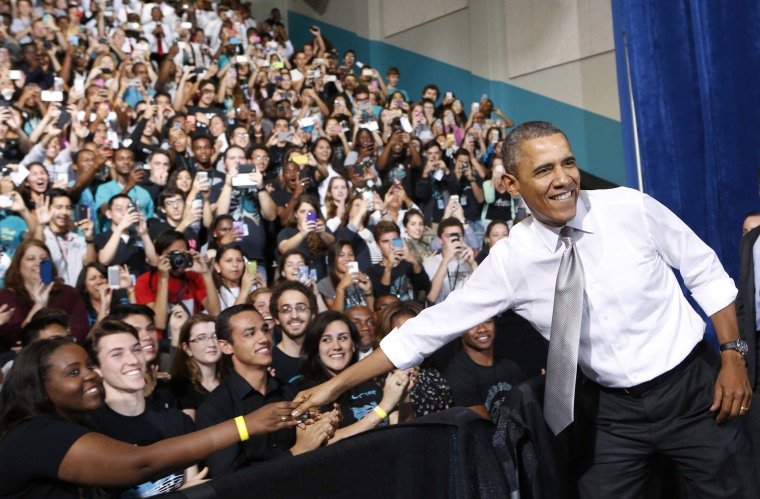Republican Party leaders seem well aware of the demographic challenges they'll face in the not-too-distant future. The party has generally relied on a more homogenous base made up of older, white, religious voters, which Republican leaders have recognized as a problem in an increasingly diverse nation.
But it's important to realize the scope of the demographic difficulties facing the GOP, because it's not just the result of changes to the electorate's racial and ethnic makeup. The generational challenges should probably be just as alarming to Republican strategists. Consider, for example, the latest Pew Research Center report, released late last week.

Kevin Drum's take rings true:
Pew has released a new survey about the social and political attitudes of various generations, and it makes for interesting reading. The thing that strikes me the most is just how clear the trends are. Each successive generation is more politically independent; more religiously independent; less likely to be married in their 20s; less trusting of others; less likely to self-ID as patriotic; and less opposed to gay rights. There's virtually no overlap at all. It's just a smooth, straight progression. But the single most interesting chart in the report is one that doesn't show this smooth progression.
Right. The Pew data shows voters under 30 moving sharply to the left in recent years. This isn't necessarily reflected in partisanship, but it is captured by ideology -- the "millennial" generation is the only generation in which self-described liberals outnumber self-described conservatives.
I've seen some suggestions that the Pew data should be taken with a grain of salt because young people are always going to be more progressive -- it's just part of youth. That's an easy explanation, which happens to be wrong.
For example, Ronald Reagan and George H.W. Bush were two of the oldest presidents ever elected, but they both won the youth vote in the 1980s. If young people are naturally more liberal, it's a very modern phenomenon.
For that matter, look at the above chart -- there's nothing steady about the trend. If there's just a natural ebb and flow to young people starting on the left and gradually changing as they get older, we wouldn't see so much variation as younger Americans move left now.
What we're left with is simply a more liberal younger generation. Among the GOP's other demographic concerns, this should be high on the list.
